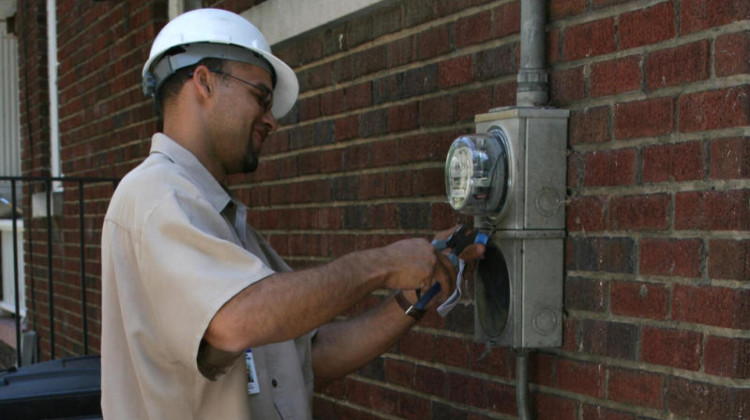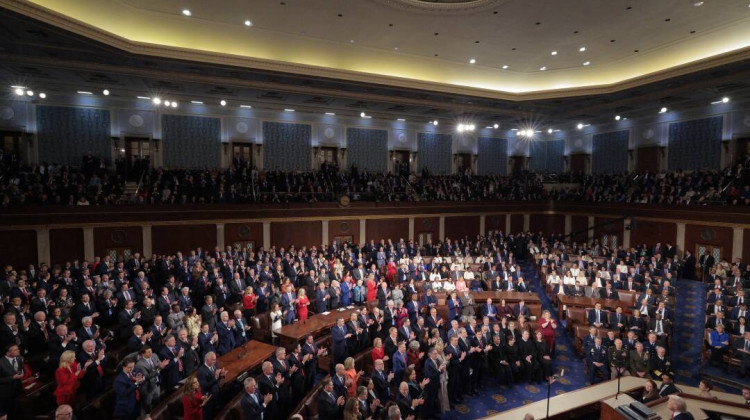
A Duke Energy technician disconnecting electricity at a residence due to nonpayment in North Carolina, 2008.
Ildar Sagdejev/Wikimedia CommonsIndiana University is helping to track electric and natural gas utility disconnections across the country. Researchers with IU’s Energy Justice Lab hope a new dashboard will raise awareness about energy insecurity and encourage policies that protect vulnerable Hoosiers.
IU professor David Konisky said the state could do more to protect vulnerable residents with unpaid bills from shut-offs. For example, Indiana’s winter moratorium on disconnections only protects Hoosiers eligible for federal assistance. And there’s no moratorium for the summer.
“It's not unheard of for people to die of heat exhaustion because they've lost access to energy, right? So it is an oversight. It's something that — Indiana is not alone in that oversight. But as we are increasingly living in a world of climate change, it's imperative that more states put in place policies that are protective in the summer, as well as the protections that already exist for winter months," Konisky said.
According to the dashboard, AES Indiana had the highest disconnection rate among electric utilities in Indiana in 2021.
Join the conversation and sign up for the Indiana Two-Way. Text "Indiana" to 73224. Your comments and questions in response to our weekly text help us find the answers you need on statewide issues, including this series on climate change and solutions.
Kerwin Olson with the consumer advocacy group Citizens Action Coalition said it’s thrilled to see that this info is being made available to the public and policymakers. But Olson said data on things like disconnections and unpaid bills should be taken with a grain of salt.
“Well the major data gap — to be clear — is that the state of Indiana does not require utilities to report this information. Many, many states require either monthly or quarterly or at least annual reporting," he said.
Olson said the state needs to make that data available if we want to ensure all Hoosiers have access to affordable energy. IU was able to easily gather data that was required during the pandemic, and some utilities voluntarily provide it — but the rest have to come from records requests, which can take a long time.
Indiana recently passed a law that protects tenants from getting disconnected if their landlord fails to pay the bills by appointing a receiver to take over the property. The law came out of a situation last winter where two apartment complexes in Indianapolis had their water shut off due to unpaid bills.
Unlike several surrounding states, Indiana doesn’t have special protections for veterans.
Rebecca is our energy and environment reporter. Contact her at rthiele@iu.edu or follow her on Twitter at @beckythiele.
9(MDAyMzk1MzA4MDE2MjY3OTY1MjM5ZDJjYQ000))
 DONATE
DONATE








 Support WFYI. We can't do it without you.
Support WFYI. We can't do it without you.